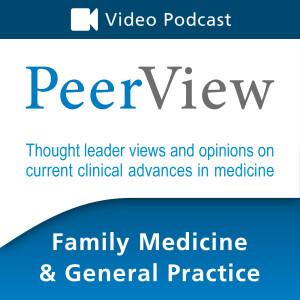
Anna Chodos, MD, MPH - Facilitating Cognitive Assessment in Primary Care for the Timely Detection of Alzheimer’s Disease: Leveraging Medicare Reimbursement Mechanisms to Improve Clinical Care
 2023-06-01
2023-06-01
Download
Right click and do "save link as"
Go online to PeerView.com/XUM860 to view the activity, download slides and practice aids, and complete the post-test to earn credit. The timely detection and diagnosis of Alzheimer’s disease (AD) can provide patients with numerous opportunities—earlier treatment initiation, increased eligibility for clinical trials, participation in long-term care planning, and the chance to make lifestyle changes to slow cognitive decline. In this activity, based on a recent live symposium, experts discuss practical strategies for integrating cognitive screening into routine care visits and conducting more detailed cognitive evaluations that results in a written care plan with patients who fail a brief cognitive screening assessment. Experts also share guidance on working with Medicare reimbursement mechanisms to facilitate consistent and effective use of early detection tools and practical skills to counsel patients and their caregivers before, during, and after the diagnostic process. Upon completion of this activity, participants should be better able to: Integrate routine cognitive assessment in outpatient visits of older adults who present with signs and symptoms of cognitive impairment to facilitate the timely diagnosis of MCI and mild dementia due to AD; Employ appropriate tools for documentation and coding of procedures (eg, cognitive assessments) and services for patients presenting with cognitive symptoms or concerns; and Implement effective communication strategies to educate patients and caregivers about the clinical significance and prognostic implications of their cognitive assessment results
view more
More Episodes
012345678910111213141516171819
Create your
podcast in
minutes
- Full-featured podcast site
- Unlimited storage and bandwidth
- Comprehensive podcast stats
- Distribute to Apple Podcasts, Spotify, and more
- Make money with your podcast
It is Free
- Privacy Policy
- Cookie Policy
- Terms of Use
- Consent Preferences
- Copyright © 2015-2024 Podbean.com





